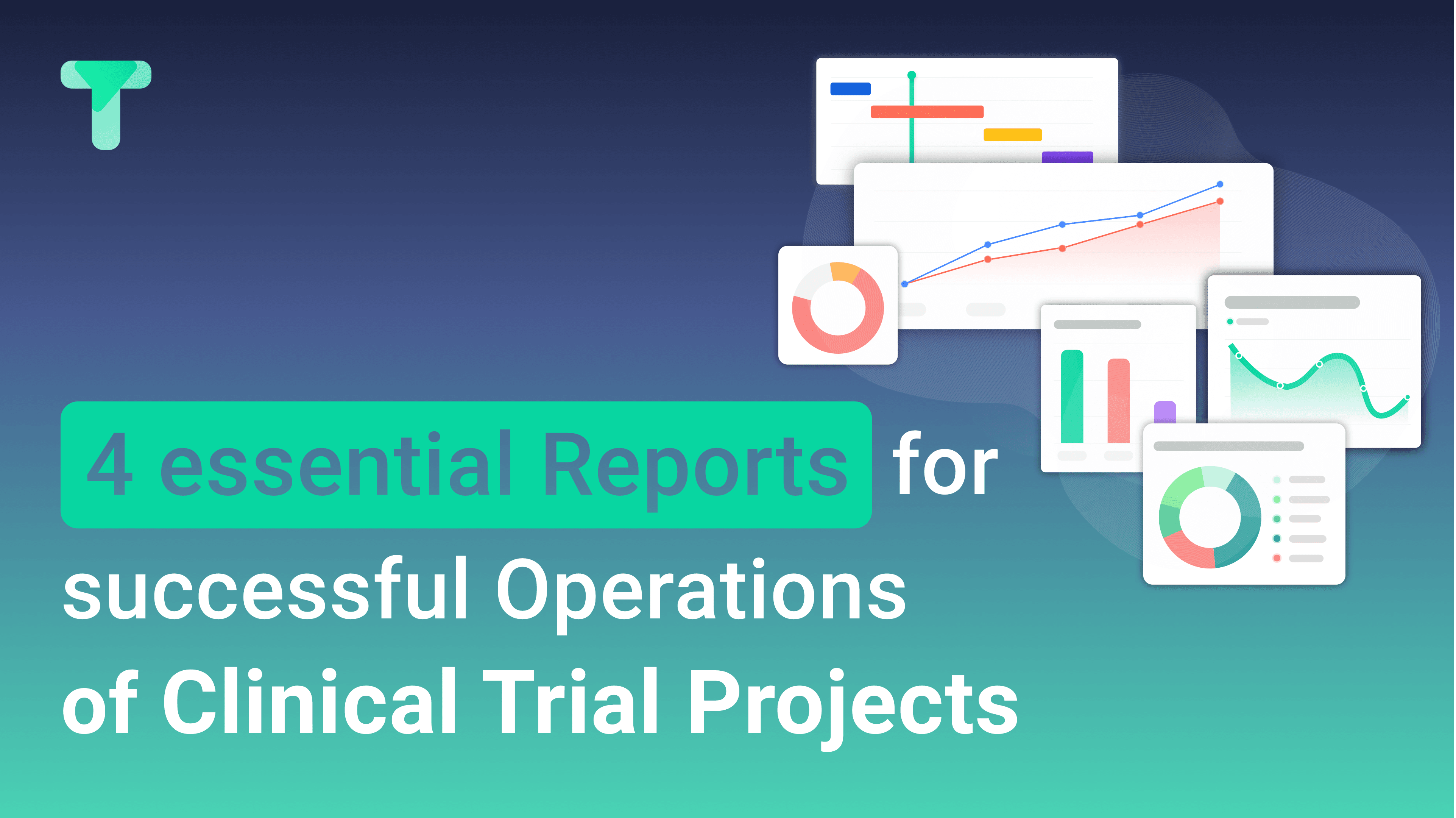

Clinical trials are complex projects characterized by long durations and substantial financial commitments. Managing these trials is a complex endeavor, demanding careful planning, vigilant budget control, and operational excellence. Clinical Trial Managers recognize the need to oversee various aspects of a trial, from finances to timelines and resources. However, traditional software like Excel often prove inadequate due to their time-consuming nature and the lack of real-time data availability. In this fast-paced clinical research environment, success depends on software solutions that simplify management, provide real-time data analysis, and deliver early warning notifications. This article introduces four essential reports, each equipped with metrics to proactively monitor all aspects of your clinical trial, to prevent it from heading off course.

Managing a clinical trial budget is a challenging task, and it remains the foremost responsibility of a project manager. The budget reconciliation supports you maintaining the financial well-being of the study. This report offers a centralized overview, presenting a comprehensive breakdown of the trial's financial status in one view. It enables real-time reconciliation between given budget and expenses, supporting decision-makers with insights for informed choices. Predictive forecasts empower the early detection of potential cost overruns and allow prompt corrective actions, safeguarding the trial's success.
Clinical trials operate on tight schedules with various milestones to meet. The Activity & Timeline Overview serves as a guiding compass, providing an overview of the trial's tasks and duties, complete with study milestones and deadlines. The report offers a detailed management dashboard for overseeing project phases, tasks, timelines, time budget burndown and their respective completion status. Additionally, it serves as an early warning system, flagging potential delays and allowing for proactive measures to address them.
While patient recruitment reports primarily track the progress of enrolled patients, the Recruitment Cost Reporting also delves into the financial aspects of recruitment actions. Achieving patient recruitment targets can be challenging due to numerous influencing factors, often leading to study extensions or adjustments in patient numbers. Thus, understanding recruitment costs, including costs per patient, becomes invaluable for an extensive and predictive study planning.
Clinical trials involve multiple stakeholders and various categories of costs at different stages. Managing subcontractors, along with associated tasks and remarkable budget amounts, is critical. Additionally, tracking external costs such as regulatory fees, software licenses, as well as patient and site fees, is essential for financial control. The Payment Overview report streamlines payment tracking, creating financial awareness by highlighting the impact of outstanding payment amounts on the project budget. It also improves cash flow processing and empowers the monitoring of the payment status, including partial payments, overdue invoices, and cancellations. Payment forecasting further enhances liquidity control, enabling oversight at both the project and company levels.
In the rapidly evolving world of clinical trials, the availability of the right tools and reports can make the difference between success and failure. With Trialytix's all-in-one solution, offering a comprehensive toolbox with synergies between multiple modules, you are equipped to navigate the complexities of clinical trial management. Manage clinical trial projects with confidence and efficiency, ensuring that issues with your operations never overshadow your quest for medical advancements.